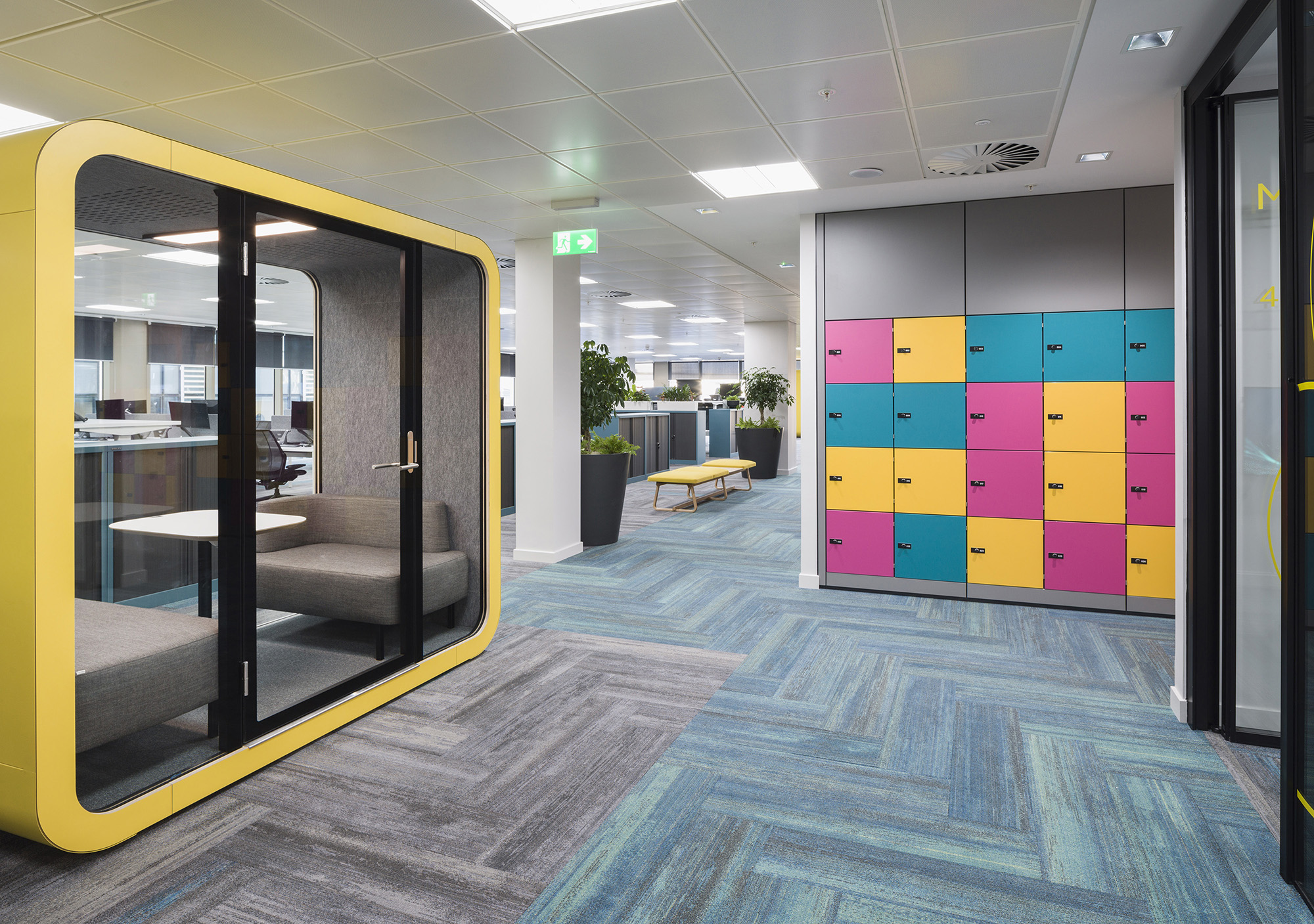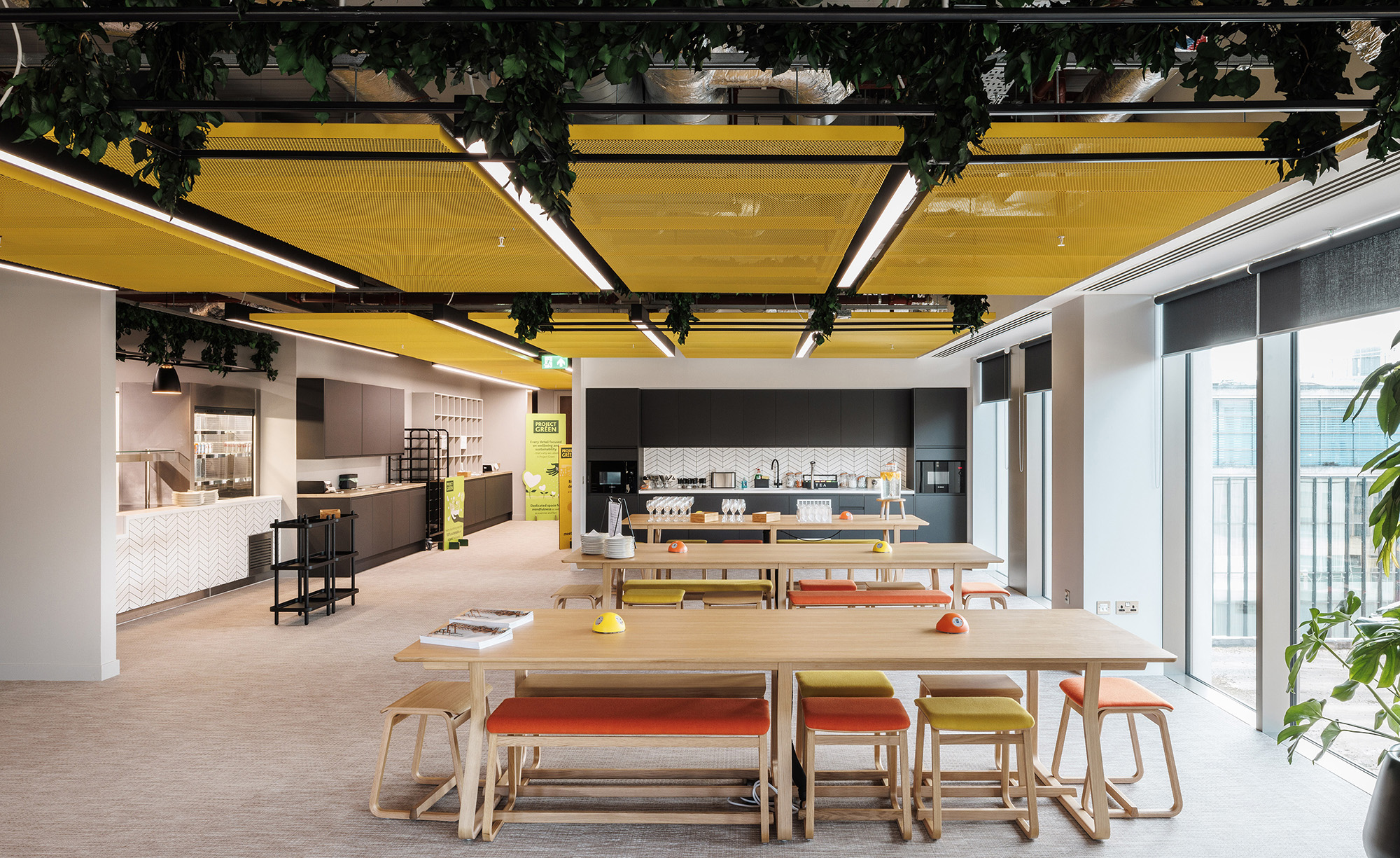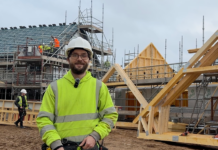
AN Edinburgh office has achieved WELL Certification from the International WELL Building Institute (IWBI).
Home of multi-national professional services firm, Pinsent Masons, the firm achieved the standard by meeting IWBI’s ‘rigorous’ standards for the design of spaces that enhance human health and wellbeing. Categories it was judged on include air, water, nourishment, light, fitness, comfort, and mind.
Designed, built and delivered in collaboration with Form Design Consultants, CBRE UK, AECOM and Overbury, Pinsent Masons’ 25,000 square foot Edinburgh office sits in Capital Square and houses over 200 staff. The design team undertook a biophilic office design philosophy, which Cundall said is a ‘proven method’ for increasing staff productivity and creativity in the workplace through the integration of natural materials and green plants.
Tony Centola, building services partner at Cundall, said, “we are delighted to have been involved in Pinsent Masons’ new offices in Edinburgh. Achieving the first WELL accredited office fit out in Scotland demonstrates Pinsent Masons’ commitment to their staff’s health and wellbeing by creating an inspiring and welcoming workplace for all.
“Our team faced and overcame many challenges including a base build not specifically designed for WELL, a pandemic, and a key supplier going into administration in the final phases of the project. We are very proud of all we have achieved and look forward to seeing more clients committing to staff wellbeing.”

Other measures implemented to encourage staff health and wellbeing included a framed view of Edinburgh Castle from reception, naturally lit breakout spaces, ‘high-quality’ filtration systems to improve indoor air quality, and circadian lighting to mimic natural daylight and help improve occupant mood, concentration, and productivity.
Sophie Simpson, associate sustainability engineer at Cundall, said, “This first certification in Scotland is a sign of things to come. In light of the pandemic, a survey by the Royal Society for Public Health found that as many as two thirds of people who switched to work from home felt disconnected from colleagues, almost half undertook less exercise and more than a third experienced musculoskeletal problems and/or disturbed sleep.
“At Cundall, we’ve seen evidence to support this, with an increased demand from clients seeking advice to curate office spaces that encourage employee health and wellbeing. There is plenty of evidence that offices that are designed to promote the physical and mental wellbeing of occupants are far more productive and happier than those that are not, and we expect this trend to continue as the world moves towards more environmentally conscious design.”








